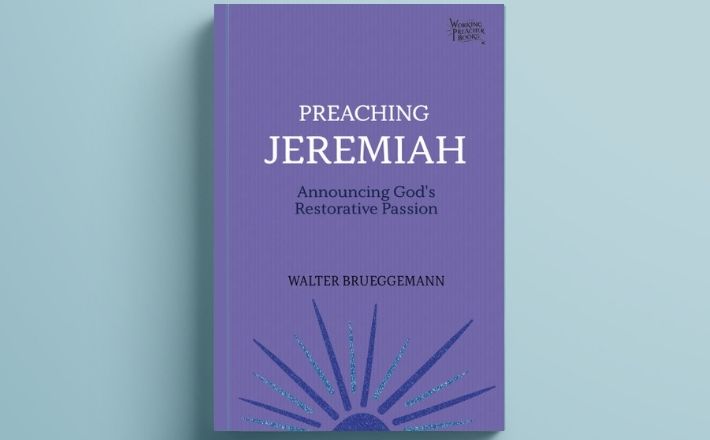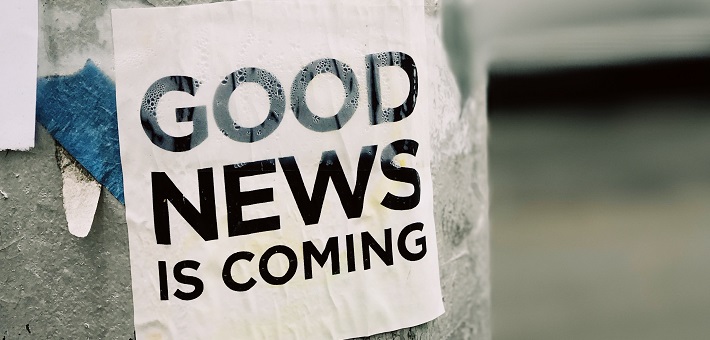How is preaching today similar to preaching in the prophet Jeremiah’s context? Our time, like Jeremiah’s, is a time of violence, fear, and loss—but also a time of hope. Loss and hope, therefore, tie our preaching moment to Jeremiah’s, contends Walter Brueggemann in the very first Working Preacher Books podcast episode, recorded in 2021.
Biblical proclamation is deeply demanding and risk-laden. Courageous, imaginative, countercultural thoughts are risky because a preacher goes far outside societal norms by claiming that we should trust and hope. It takes extreme commitment and intentionality to insist on this way of viewing the world when so many influences contradict it.
Prophetic preaching is imaginative
What is imagination, in a Christian sense? It is the capacity to host a world apart from the one that is in front of us. It’s a faithful way to dwell in and bear witness to the Gospel, in the face of a barrage of contradictions provided by the world we all take for granted. The imaginative preacher presents a vision of God’s world, rather than accommodating the Gospel to the world in front of us. We cannot do that if we are only talking with people who agree with us.
Jeremiah, for example, speaks into the trauma of the loss of the familiar, later echoed in the trauma of the cross. The Book of Jeremiah is most helpful when addressing trauma because it begins with truth-telling through imagery or imagination. We are tempted to use accommodating euphemisms so we do not have to fully face traumatic experiences, but Jeremiah’s imagery can help us face them. When one is a faithful truth-teller, hope wells up. Yet hope cannot well up unless truth be told.
Authorized to tell the truth
The prophets were authorized directly by Yahweh. In what way are we authorized for such daring utterance? Ordination is a verification of this authorization, says Brueggemann, but a preacher has to go back in his or her life for their own story of being authorized to be an imaginative, truth-telling preacher.
What can we learn from Jeremiah’s creativity? Everywhere he looked, he saw the embodiment of the kingdom of God. Jesus, in his parables, did the same. It is the “homiletical eye” or, as Barbara Brown Taylor puts it, being a “detective of divinity”—a calling that belongs to preachers today. In our context, we are invited to reflect on the traumatic loss of the old certitude, such as the notion of American chosenness, privilege, and dominance. The nostalgia for the world of dominance that never existed echoes in our present. Jeremiah’s first task is to declare to the reader/hearer: Whether you treasured that world or not, it is gone, and it is not coming back as it was. This addresses American exceptionalism as well.
A season of relinquishment
One response to trauma is violence. In none of Jeremiah’s laments, however, does he wish for violence (as Psalm 137 does, which the podcasters discuss). Jeremiah says instead to plant gardens and seek the shalom of Babylon. That’s the opposite of violence or nostalgia. It’s an act of hope. If we are to hope, at the same time we have to relinquish what has been lost and recognize the pain in doing so. We are in a season of relinquishment, turning loose things we have treasured, which is exactly what Jesus called his disciples to do—to leave behind their old lives in order to enter a new life of discipleship and companionship.
It is always interesting to ask: Why did the community of faith keep this text? Preachers can then show the congregation why it’s important for us to keep this text in our faith.
For more on this volume in the Working Preacher Books series, Preaching Jeremiah, listen to the podcast episode from 2021 or watch it on YouTube, in which the late Walter Brueggemann discusses preaching Jeremiah and the Old Testament in general with Rolf Jacobson and Karoline Lewis.

